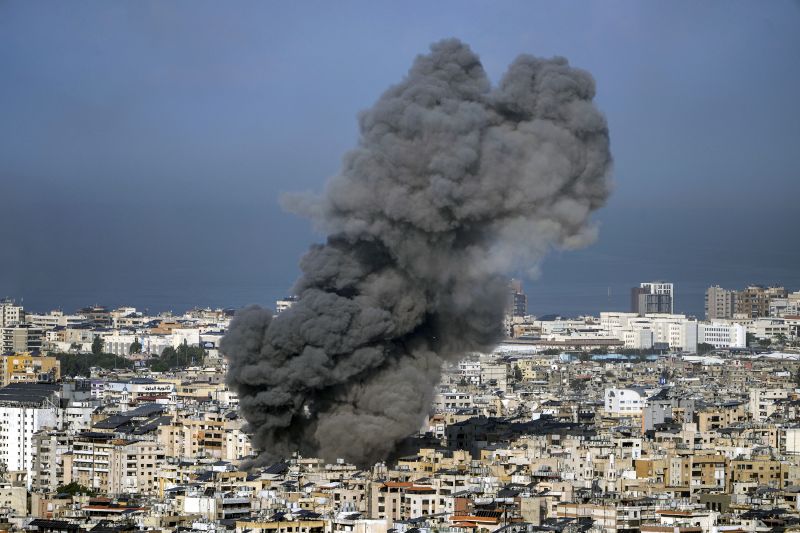The heart of the Middle East has once again flared up with conflict as Israel maintains a barrage of attacks on southern Beirut, the Lebanese capital, even as Hezbollah considers a fresh ceasefire proposal. This recent outbreak of violence has served as a reminder of the longstanding tension in the region and the challenging path to peace. An indispensable player in the region’s geopolitics, Israel’s current actions further underline its assertive role, even as it tests the resilience of Hezbollah and surrounding nations.
Israel’s aerial assaults, targeted in the southern part of Beirut known as a stronghold for Hezbollah, aim to demoralize the resistance and curtail its power in Lebanon. These actions are deemed controversial, escalating already high tensions. Through the offensive, Israel has made it clear that it will fight resolutely against Hezbollah’s influence in Lebanon.
In response to these ongoing escalations, the political arm of Hezbollah has considering a tentative ceasefire proposal, indicating a willingness to negotiate. Yet, the proposition of ceasefire comes with the inevitable reality of compromise, and it remains to be seen how Hezbollah, a crucial player in the Lebanese political scene, will balance the demands of its military objectives with the necessity of peace.
While Hezbollah’s consideration represents an opening for dialogue, it is crucial to understand that enduring peace does not simply arise from a ceasefire. The process also necessitates addressing fundamental issues that have long fueled the conflict. This involves recognizing the sovereignty of states, addressing the plight of displaced people, drawing internationally agreed borders, and creating an environment conducive to negotiations.
The Israeli offensive has also drawn international attention and criticism. While some nations and international bodies acknowledge Israel’s right to self-defense, others denounce the air strikes as overly aggressive and potentially violating international law. The UN, along with several humanitarian organizations, has expressed concern over the growing civilian casualty rate and displacement caused by the airstrikes. Their pleas for peace, however, continue to compete with the region’s harsh geopolitical realities.
Israel’s use of force illustrates its uncompromising stance towards perceived threats. Meanwhile, Hezbollah’s contemplation of a new ceasefire proposal may reveal a shift in its conventional strategy of an armed resistance. It may signal an acknowledgment of the complexity of modern warfare, where the power of public opinion and diplomatic maneuvering can be as decisive as military strength.
The continued turbulence in the region underscores the need for a comprehensive peace process, one that involves all stakeholders and seeks to address the root causes of conflict. A ceasefire between Israel and Hezbollah could be the initial step towards this goal. However, given the volatility of the region and the history of broken agreements, an important question still hangs in the air: Whether this ceasefire proposal will mark the beginning of a new era of peace or merely serve as a pause before yet another cycle of violence is hard to predict.
As the situation continues to evolve, the world watches with bated breath. The international community, along with regional actors, has a collective responsibility to encourage a peaceful resolution to the conflict and a lasting solution that respects the rights and aspirations of all parties concerned. As history has shown, the path towards lasting peace is fraught with obstacles. However, the promise of a better future, one in which all people in the Middle East can live in security and dignity, is a goal worth striving for.




